Streamlining Legal Operations to Increase Efficiency in Your Legal Department – Guest Post

Law firms and legal departments need to drive efficiency in legal operations to enhance business growth. With the legal services market growing expeditiously, its value is expected to reach $1511.45 billion in 2030. Hence, streamlining legal operations is essential for legal departments to benefit from the evolving dynamics of the legal industry.
In this blog, we will understand legal operations, how optimizing legal operations can help legal organizations drive growth, and insights into improving their processes. Read on to upgrade your legal operations for more efficiency and effectiveness.
What is Legal Operation?
Legal operation in any legal firm forms the basis of all the processes and activities necessary to handle and execute the core legal functions and enhance business growth for the organization. These functions are not limited to practicing law. They encompass strategy building, optimizing resource usage, supervising regulation compliance, integrating essential technologies with traditional, and more.
The purpose of structured legal operations is to streamline the workflow within the organization and optimize the delivery of legal services to clients. As such, legal operations is more about cost management, as evidenced by research conducted by Gartner that organizations with dedicated legal operations capabilities witnessed a 30% decrease in legal expenditure. It also helps improve efficiency, control risk factors, and ensure smooth integration of all the processes to acquire outcomes that align with the organization’s business goals.
While considering legal operations, one essential aspect is teamwork. This refers to the collaboration of diversified skillsets of attorneys, legal assistants, administrative support staff, and others to drive favorable results for the clients and the stakeholders equally. Successful and straightforward communication between all the team members helps them coordinate with each other while focusing on their individual tasks effortlessly.
Another critical aspect is automation by incorporating technological tools to accelerate routine processes like document management, scheduling, contract analysis, or digital invoicing and save time to concentrate on core legal activities.
Advantages of Streamlining Legal Operations
Streamlining legal operations can acquire multiple benefits for a legal firm or legal team at any business organization. Implementing reliable processes and creating a standard team structure can help these organizations increase efficiency in their work. Here are some significant benefits of streamlining legal operations –
- The first is cost management. Identifying critical tasks and removing unnecessary processes from the workflow can help organizations to optimize operational expenses. This, in turn, allows them to spend their resources cautiously and develop a better understanding of budget and financial structure.
- Secondly, it increases productivity within the team. When operations are simplified, legal professionals can concentrate on their primary role, which is to deliver efficient legal services, rather than getting burdened by extraneous administrative procedures. This reduces the processing time resulting in enhanced client contentment.
- A structured and smooth workflow ensures better collaboration among the team members. When members have clear roles and responsibilities in the team structure, they support each other in achieving the ultimate objective. With defined tasks, communication becomes easier, and knowledge sharing becomes a crucial practice.
- Additionally, when the processes are defined, and protocols are set, organizations can ensure that all the activities within the team meet the standard industry requisites and are conducted according to its specified regulations.
Essential Tips for Streamlining Legal Operations in Your Firm
With all its benefits discussed, optimizing legal operations can help law firms to enhance their growth within the fast-paced legal landscape. Here are some essential points to consider for streamlining legal operations.
Training your Resources
An organization’s growth is directly dependent on the growth of its team members. Provide opportunities for your team members to enhance their skills and knowledge to keep up with the industry.
Previously, most legal organizations were focused on the geographic factors associated with their work. Lawyers from a countries are often limited to the approaches and practices in their region and are still away from using modern tech in legal operations, affecting global collaboration and increasing the risk involved in such ventures. It is evident from the fact that in Bloomberg’s 2022 Legal Ops + Tech Survey, only 53% of participants felt that they were properly trained in legal technology.
When organizations remove these limitations and equip their team members with the essential skills to lead the team on a global pedestal, efficiency and growth cannot be far behind. Moreover, cost management becomes easier when the team is empowered to manage tasks more effectively.
Develop a Strategic Hiring Process
Another significant tip for streamlining legal operations is to hire people according to the needs of the organization and areas of maximum opportunities.
To strategize the hiring process, you must first evaluate the current team, their roles and responsibilities, and the existing process, and analyze if any of it needs any modification and if there is a need to hire more people.
According to research by Gartner, 54% of lawyers are exhausted, and 68% wish to leave their jobs. Working with an exhausted team reduces the quality of work and hampers the organization’s growth. Hence, adding workforce can help.
Another factor you must consider is whether you have appointed the right people to achieve the desired results at the right places.
Once you have completed the analysis and made the necessary adjustments, you can identify the critical areas of opportunity and develop a hiring strategy to appoint new team members with the essential skills to fill in the gaps within the workflow.
For instance,
- If you’re just beginning to optimize your legal operations and need dedicated focus to develop a clear strategy, you can hire a legal operations manager or team lead who can supervise and collaborate with the other teammates to plan their future objectives.
- You may feel that your team of legal professionals are lacking technological expertise. Your organization might need modern technological solutions to simplify and automate its day-to-day processes. Then, you can consider recruiting someone from a tech background. This individual can help your organization implement the right software solutions for specific problems. Today’s market has the best enterprise legal management software solution for law firms to leverage organization productivity to optimal capacity.
- There may be multiple ongoing projects at your firm. In this situation, consider hiring an experienced individual with diverse legal knowledge to accelerate the tasks at hand for each project and improve efficiency.
Considering the budget of your organization is also important when hiring new staff. It is essential that you build a strategy that adds to the growth of your existing team while moving your organization closer to its business goals.
Adopting Technology to Optimize Administrative Tasks
Technology is an essential part of streamlining legal operations, playing a vital role in the efficacy of your team and the outcomes. However, digitizing legal processes still seems monumental for many legal organizations as most legal professionals are extremely busy to consider taking time to transform their processes.
But, according to research, 63% of tasks performed at a legal firm are repetitive, based on set protocols, and do not require human intervention for completion. Thus, prioritizing technological upgrades can significantly help you address critical issues within legal operations and improve the productivity of the team. For example, legal technology like contract management systems (CMS) automates contract analysis and helps with document organization. This helps save time and manual effort spent reviewing contracts, allowing the legal team to focus on more critical tasks.
Similarly, there are other instances where adopting technology can help improve the efficiency of your organization.
- If your billing system is not functioning properly, sending invoices to clients often becomes troublesome. You can try e-billing software to simplify the process and reduce errors.
- Matter management software can help you respond to legal matters timely. Moreover, you can consider self-service solutions for legal issues, such as chatbots.
- Consider contract analytics to gain insights into the evolving legal space. Learn about the trends and best practices that can help improve your work to enhance the final results.
Understandably, many legal organizations may not opt for digital transformation due to budget constraints. In such a scenario, you can start the adaptation one step at a time and opt for the technology you need the most to improve your team’s productivity and gradually add modifications.
Strategic Planning and Tracking Performance with Pre-Determined KPIs
Measuring the performance of all the legal professionals working in a firm often comes as a challenge that impacts the efforts made for streamlining legal operations. One reason is the lack of data needed to track and quantify the value added by each team member. In the 2021 State of Legal Operations Survey by Deloitte, only 34% of participants agreed that they use KPIs to track performance periodically, which is a low number.
Reviewing Key Performance Indicators (KPIs) before getting started for a new quarter helps ensure that the legal team is on the same page and works together to achieve the set goals. Determine measurable goals for each individual and sketch a road map for a specified period. Tracking these established metrics is easier and helps analyze the organization’s progress. It also helps in identifying the areas that require refinement. Moreover, it encourages the legal team to work more efficiently to meet their targets and bring subsequent growth to the organization.
Additionally, the KPIs can be data-centric and analyze both the input and output for a more insightful measurement of the performance of an individual. Simply calculating the number of cases a lawyer manages or counting the transactions completed in the quarter won’t help.
Evaluating Task Outsourcing Decisions
Evaluation of your organization’s existing processes must include tasks performed internally and those outsourced to external teams. It will help decide if the tasks you are outsourcing can be handled internally with the skills and expertise of your team or vice versa and help with cost management. As per the 2022 Legal Department Operations Index by Thomson Reuters Institute, 80% of legal departments reported that 25% of their work was outsourced to external teams.
When identifying tasks that need outsourcing or picking the ones that need in-house efforts, you must consider some significant factors like
- The primary services you offer at your firm
- Which are the tasks that need more control from your internal team?
- What responsibilities are your team fulfilling efficiently, and which tasks consume more time and affect their productivity?
- Any changes in the organizational structure, like new recruitment or modification goals, etc., that can impact the existing processes
- Complexities of the task at hand
- Risks associated with the tasks
- Volume of the existing tasks and their potential to increase in the future
High-volume tasks which take up a significant amount of time but have low risk associated with them can be easily outsourced to allow your team to target their efforts on high-priority tasks instead. Similarly, there may be instances when some cases are beyond the expertise of your in-house team. Outsourcing work to external legal experts can be helpful in such a situation.
You can ensure your team operates efficiently and cost-effectively by evaluating and improvising your outsourcing system.
Wrapping Up
Implementing these essential changes can help in streamlining legal operations at your firm. Hiring the right people at the right time, delegating tasks to external sources, training your team and tracking performances, and, most importantly, adopting new technology to simplify tasks can significantly help your organization’s growth
Author Bio:
Marketing Professional with over ten years of experience. Interested in blogging and helps small businesses with innovative ideas that keep pulling in newness and creativity. Currently, Heads the marketing team at BizInfor, a b2b database solution firm providing various services like data cleansing, data appending, lead generation email lists, etc.


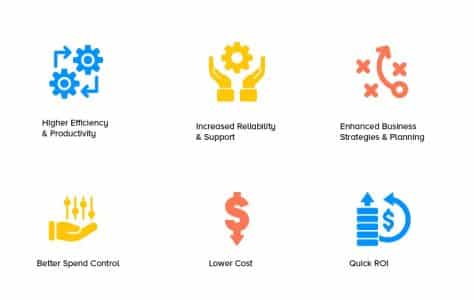
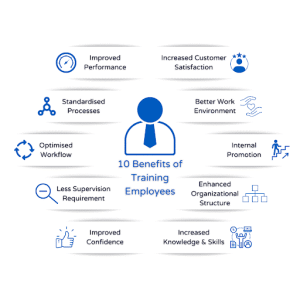
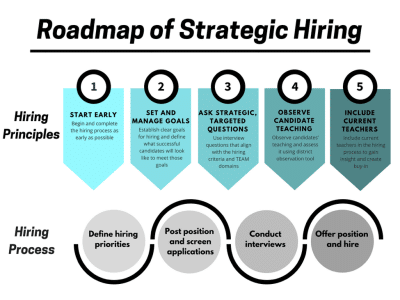
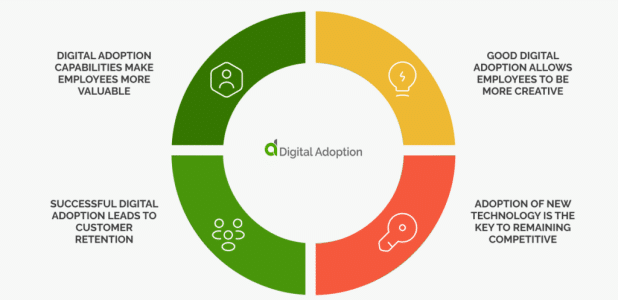

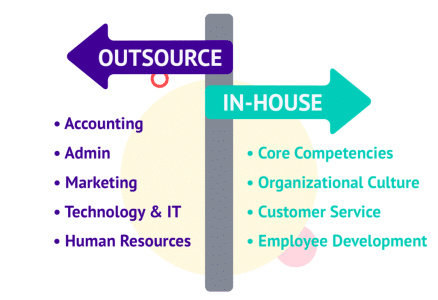
Recent Comments